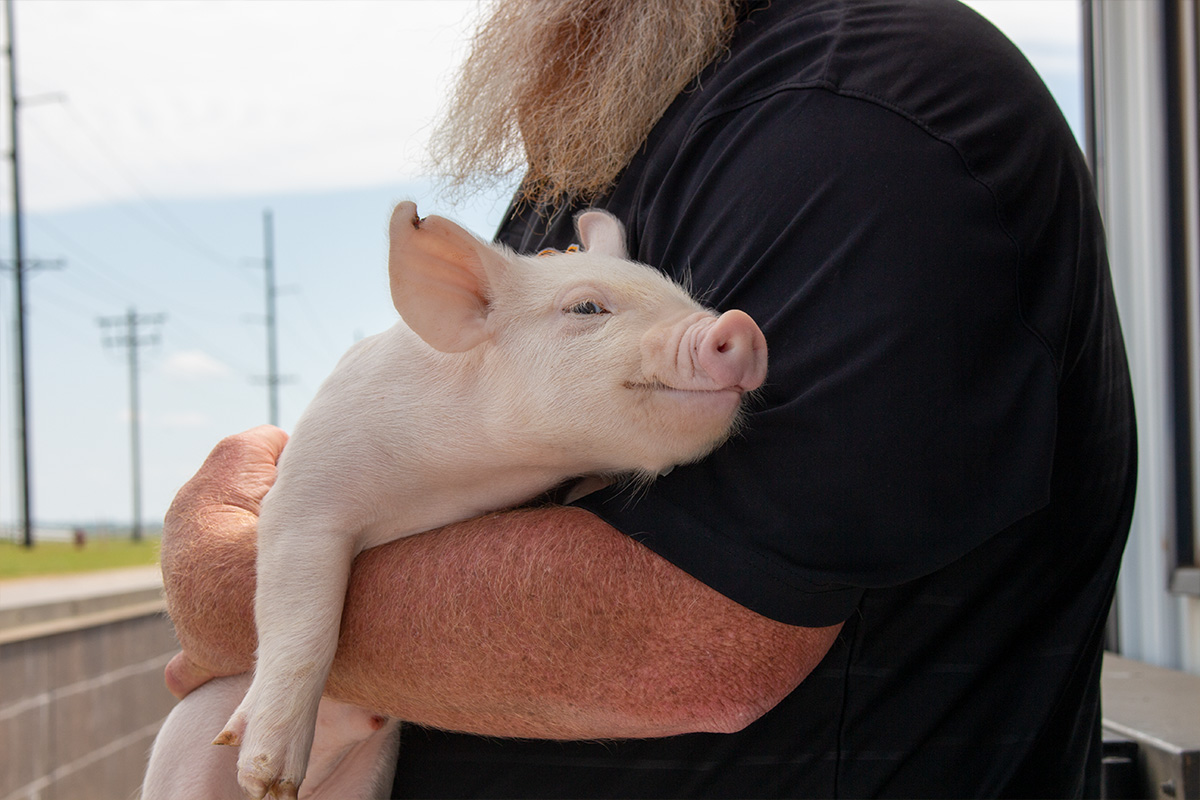Non-Ruminant Nutrition
Non-ruminant animals are animals with a single-compartment stomach, such as swine,
poultry, horses, dogs, cats, and humans. Non-ruminant nutrition looks at the diet
of these animals as it relates to their digestion, growth, performance, and overall
health.
Teaching
Anyone interested in non-ruminant nutrition can pursue an animal science degree within our department.
Research
Our non-ruminant nutrition research focuses on:
- Development of novel alternatives to antibiotics.
- Gut microbiota that are linked to animal health and growth performance.
- Immune boosting dietary compounds for growth promotion and disease control and prevention.
- The effect of alternative feedstuffs on growth performance and carcass traits.
- The effects of feed additives on growth performance and carcass traits.
- The impact of diet on nutrient excretion and gaseous emissions.
Extension
We strive to keep the industry and consumers informed with up-to-date research data and outreach efforts.

